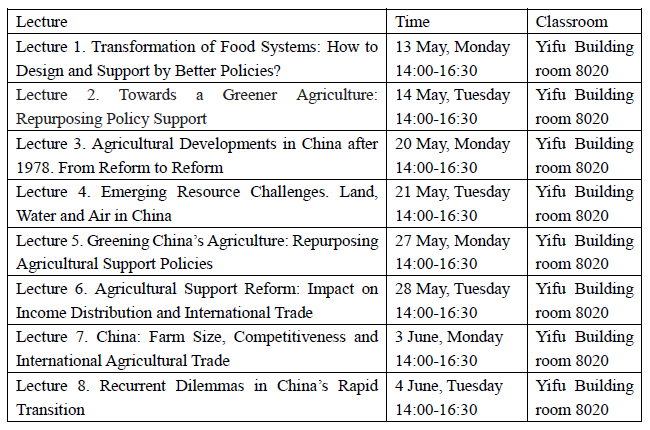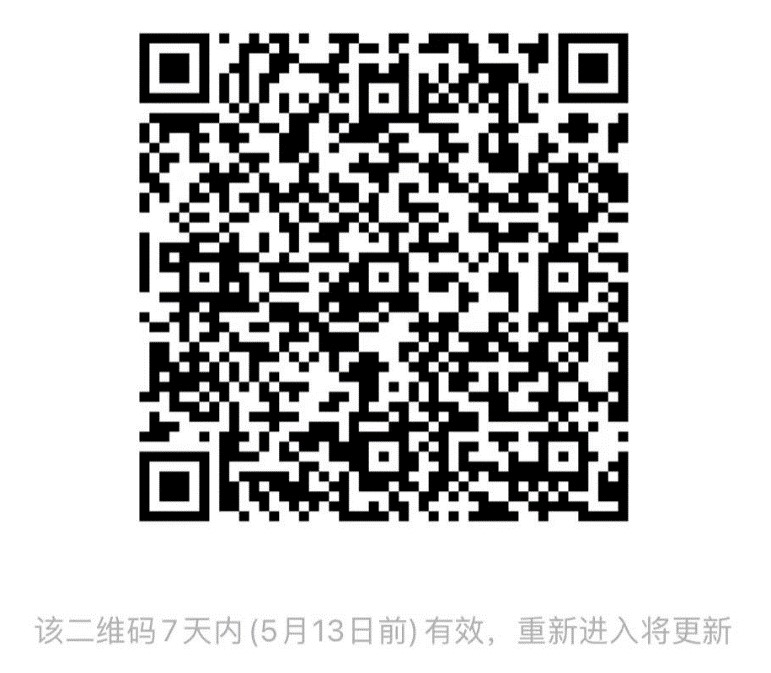Instructor: Prof. Arie Kuyvenhoven, Wageningen University, the Netherlands, and Visiting Professor, Nanjing Agricultural University, College of Public Administration
Prof. Arie Kuyvenhoven is a professor emeritus of Development Economics at Wageningen University in the Netherlands. He received his PhD in Development Economics (cum laude) from Erasmus University Rotterdam. Before joining Wageningen University in 1987, he taught at Erasmus University Rotterdam and the University of Lagos, Nigeria. Since 1979 he has been affiliated with the Netherlands Economic Institute in Rotterdam where he was statutory Director International Affairs from 1988 to 1998. In the 1990s he served at Wageningen University as Dean of Social Sciences and Chairman of the Department of Economics and Management, and during 2003-2009 as Director of Mansholt (Wageningen) Graduate School of Social Sciences. He has been visiting faculty at Cornell University, Ithaca, N.Y., and the University of California, Davis. He is an honorary professor of economics at Nanjing Agricultural University in China where he also serves as visiting professor since 2014. Over his career, he has worked in 20 developing countries in Africa, Asia and Latin America.
Arie Kuyvenhoven is (co-)author of more than 150 scholarly articles, has written or edited 15 books and (co-)supervised 34 dissertations on issues related to development and trade, input-output analysis and project appraisal, sustainable agriculture, food security and environmental issues. Having overall responsibility for the Development Economics group at Wageningen University for 20 years, he has been involved in bio-economic modelling, agricultural and rural development, and natural resource management. In this connection he has directed various research co-operation programmes in West Africa, Costa Rica, Pakistan, Indonesia and China. He has been a consultant to many international organisations, national governments and the Netherlands Ministry of Foreign Affairs.
He has served on several supervisory boards, including the International Food Policy Research Institute (IFPRI) in Washington, D.C. as chair programme committee, the Centre for World Food Studies at the Free University of Amsterdam, and the Asian Centre for Upland Crops in Bogor, Indonesia. For many years, he was a member of the Netherlands National Advisory Council for Development Co-operation, member of the board of the Dutch NGO Bilance (now Cordaid), advisor to the board of the Netherlands Economic Institute, and vice-chairman of the editorial board of the Dutch economic journal ESB. He is an honorary life member of the International Association of Agricultural Economists (IAAE). After his retirement in 2007, he has been advisor to IFPRI, the European Commission, Rabobank International, The Royal Netherlands Academy of Arts and Sciences (KNAW), the University of Bonn, Wageningen University, various academic committees, and several NGOs.
Course Introduction
Lecture Series: Transformation of Agri-Food Systems and its Implications for Agricultural and Rural Development in China
Course Credit: Two credits
Introduction: Currently, a lively international discussion is taking place about the desired transformation of food systems towards more sustainable and climate-neutral practices (“green agriculture”). A number of excellent studies dealing with the implications of such a transformation have recently appeared, both internationally, covering the world at large, as well as for China. In the present lecture series, a representative selection of those studies will be discussed.
It consists of eight lectures:
1. Transformation of Food Systems: How to Design and Support by Better Policies?
2. Towards a Greener Agriculture: Repurposing Policy Support
3. Agricultural Developments in China after 1978. From Reform to Reform
4. Emerging Resource Challenges. Land, Water and Air in China
5. Greening China’s Agriculture: Repurposing Agricultural Support Policies
6. Agricultural Support Reform: Impact on Income Distribution and International Trade
7. China: Farm Size, Competitiveness and International Agricultural Trade
8. Recurrent Dilemmas in China’s Rapid Transition
In the first two lectures the proposals for a transformation world-wide will be presented, followed by applications to China in the subsequent lectures. Before dealing with the proposed repurposing of agricultural policy support for a green transition in China, two lectures serve to introduce the current agricultural and resource challenges in the country. By way of conclusion, the last lecture discusses major emerging challenges and dilemmas.
Class time and place:

Course selection: Students who want to take the course should send a text message “Student ID + Name + Professional + College + Contact Information” to 2022209015@stu.njau.edu.cn (Yu Yiyi) before 17:00 on May 12th and join the WeChat group.

Students who have not yet chosen courses are also welcome to participate in the lectures.